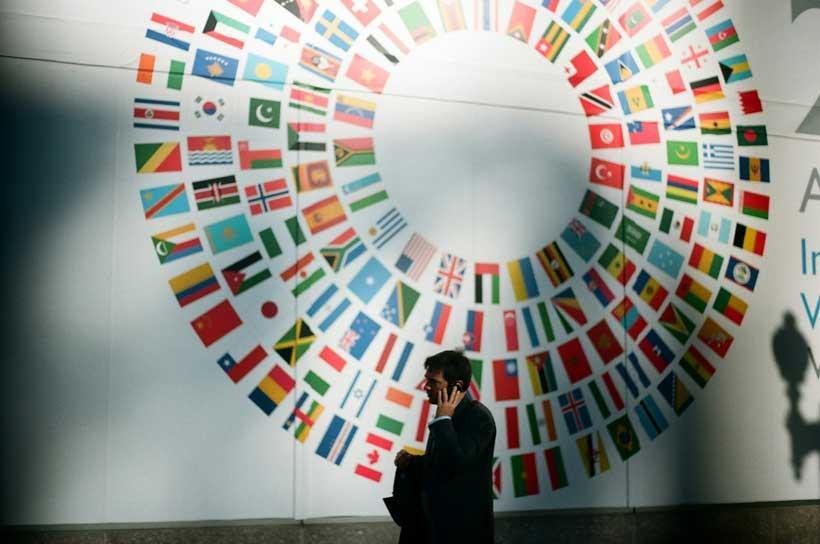By
Othon A. Leon
Africa-Press – Kenya. May 8, 1945, marked not only the defeat of Nazi Germany but also the birth of a new international order. In their relentless quest to prevent a recurrence of such devastation, the victorious Allied powers sought to build a diplomatic architecture rooted in cooperation, economic interdependence, and collective security. Institutions such as the United Nations (UN), the International Monetary Fund (IMF), and the World Bank (WB) emerged as key pillars of this vision. At the same time, the Bretton Woods system aimed to stabilize the global economy and facilitate peaceful development. This moment of reconstruction carried a profound ambition: to replace the brutal logic of war with the supremacy of diplomacy.
However, after eighty years of reflection, the post-war order, though well-intentioned, failed to address the deep structural tensions that continued to shape global affairs. While it prevented another world war, it could not contain or resolve the numerous small wars and long-standing crises that erupted in its wake. The mismanagement of the decolonization process, the stubbornness of Cold War hostilities, the escalation of proxy conflicts in the Global South, and the inability to preempt or mitigate the fragmentation of the post-Soviet world all highlight the limitations of this order. Today’s world, characterized by entrenched inequalities, strategic mistrust, democratic backsliding, and persistent violence, is the result of these accumulated diplomatic failures in many ways.
As the international community commemorates the 80th anniversary of the end of World War II, it is crucial to reassess the legacy of this diplomatic project critically. Rather than ensuring lasting peace, the post-1945 order has created a fragile and contested world whose cracks have become even more apparent in the 21st century.
The Illusion of Permanent Peace
Established in 1945, the UN was designed to be the cornerstone of that vision: a forum enabling sovereign states to resolve disputes peacefully, avoiding the diplomatic breakdowns that had led to previous conflicts. The Bretton Woods institutions, namely the IMF and the WB, sought to stabilize the global financial system and promote prosperity, believing that shared economic growth would reduce the impetus for war.
However, this idea of permanent peace ran into geopolitical realities. The Cold War divided the world into two blocs, with the U.S. and the USSR engaged in an ideological confrontation that bypassed and undermined multilateral institutions. Proxy wars emerged across the Global South, turning countries such as Korea, Vietnam, Angola, Nicaragua, and Afghanistan into battlegrounds for great power rivalry.
The postwar diplomatic system often facilitated conflict rather than prevented it. The UN Security Council’s veto system enabled deadlocks rather than solutions, while both superpowers routinely ignored international norms when it suited them. In Latin America, for example, U.S. support for coups and dictatorships in Chile and Nicaragua was justified in the name of anti-communism. At the same time, the USSR suppressed uprisings in Hungary and Czechoslovakia with brute force, events that illustrate how both sides of the Cold War sacrificed peace for strategic interests.
The regime also failed to address the complexities of decolonization. Between the 1940s and 1970s, newly independent states emerged in Africa, Asia, and the Middle East. Many were left politically fragile and economically dependent. Former colonial powers continued interfering in their affairs, often through covert operations or economic influence. International institutions lacked the tools to manage violent transitions; examples include Algeria, Congo, and the India-Pakistan divide.
Nowhere were these failures more evident than in the Middle East. Postcolonial borders, Cold War alliances, and persistent foreign interventions combined to produce decades of instability. The Israeli-Palestinian conflict, the Iranian Revolution, and multiple U.S. military interventions created a region where diplomacy repeatedly faltered and violence became cyclical.
These developments show that the postwar order was not inherently peaceful but instead constructed to maintain the status quo of dominant powers. While the notion of permanent peace was noble, it ignored the inequalities and historical injustices inherent in geopolitics. The institutions of 1945 were not equipped to resolve the discrepancies emerging in a changing world, and the price of this neglect is still being paid.
Ethnic Conflicts and the Post-Soviet Space
The end of the USSR in 1991 triggered a wave of ethnic and regional conflicts, particularly in the Balkans and the Caucasus. Instead of a transition to peace and democracy, the international community faced violent wars in Bosnia, Kosovo, and Nagorno-Karabakh. These crises revealed the limitations of the post-World War II diplomatic framework, which was reactive and ill-suited to managing identity-based conflicts.
In regions such as the Caucasus, Russia often played the role of both mediator and participant, complicating efforts at neutral resolution. Many of these conflicts were rooted in long-repressed ethnic tensions, which were quickly exploited by local elites. International institutions, such as the UN, struggled to respond, hampered by veto policies and selective intervention. The result was a patchwork of frozen conflicts that diplomacy failed to resolve, revealing significant weaknesses in the post-Cold War order.
A Persistent Stalemate
Never since 1945 have the limits of international diplomacy been tested as much as in the Middle East. Despite high-level summits and peace initiatives, from Camp David to Oslo and Annapolis, the Israeli-Palestinian conflict remains. Successive attempts by international mediators have failed to achieve a settlement, often due to imbalanced power dynamics, internal shifts, and a lack of implementation strategies. The failure to reach basic agreements on issues such as borders, refugees, and the status of Jerusalem highlights the paralysis that affects diplomatic efforts.
Foreign interventions have repeatedly increased the region’s instability. The 2003 US-led invasion of Iraq, launched under the pretext of weapons of mass destruction, not only lacked clear multilateral support but also led to the dismantling of Iraqi state institutions without a viable plan for reconstruction. This miscalculation fractured the country along sectarian lines and contributed to the rise of extremist groups like ISIS. Similarly, the Syrian civil war drew in a complex web of regional and international actors. Ceasefire attempts and negotiations, including UN-led efforts, failed due to diverging interests, mutual mistrust, and vetoes within the UN Security Council.
All these failures are structural. The region’s diplomatic history has been characterized by short-term crisis management rather than long-term strategy. Western powers have prioritized access to oil, counterterrorism, and regional alliances over addressing the root causes of the conflict, such as authoritarian rule, inequality, and the unresolved legacy of colonialism. Furthermore, the exclusion or marginalization of key local actors in diplomatic processes has undermined the legitimacy and sustainability of many proposed solutions.
In short, the Middle East embodies the broader failures of post-1945 diplomacy: an overreliance on military solutions, a failure to anticipate unintended consequences, and a persistent disconnect between diplomatic theory and regional complexity. Without a radical shift toward comprehensive, historically grounded, and locally driven approaches, diplomacy in the region is destined to fail.
The Erosion of Democracy
The decades following World War II were marked by expansion in democratic governance, particularly during the post-Cold War era, when many authoritarian regimes transitioned, at least officially, towards democracy. However, this trend has reversed sharply in recent years. The global average score has fallen to 5.17. Only 24 countries, or 7.8% of the world’s population, are today classified as “full democracies,” while nearly 40% live under authoritarian regimes. Even within flawed and hybrid democracies, basic standards are deteriorating. Civil liberties are under attack, judicial independence is increasingly politicized, and public trust in key institutions is steadily worsening.
Elections, once a cornerstone of democratic legitimacy, are increasingly vulnerable to manipulation, voter suppression, disinformation, and even violence. In 2024 alone, more than 40% of countries that held national elections received credible reports of irregularities, restrictions on political opposition, or repression of dissent.
The number of full democracies peaked around 2015 but has been steadily declining since then, while the number of authoritarian regimes has increased. Disinformation, algorithmic polarization, rising inequality, and the failure of liberal democracies to provide economic security have contributed to a widespread sense of disillusionment.
As democratic norms weaken, diplomacy based on liberal values loses legitimacy. Multilateral cooperation becomes more difficult when the principal actors themselves undermine the principles they claim to defend. Thus, this democratic stagnation is not simply a domestic governance problem but a geopolitical vulnerability.
A Renewed Diplomacy for a Fractured World
With the decline of democracy and the chronic continuation of conflicts, the diplomatic framework established after 1945 seems increasingly outdated. A bipolar ideological struggle defined the twentieth century; diffuse threats, fragmented powers, and widespread mistrust mark today’s world. In this context, diplomacy must evolve and adapt, not through minor adjustments, but through a comprehensive rethinking.
Acknowledging multipolarity is essential. Diplomacy must now engage regional actors (there is no choice), civil society, and international institutions, transcending traditional hierarchies to foster meaningful consensus. Structural inequalities must also be confronted. If institutions like the UN Security Council remain dominated by post-war powers, multilateralism will lack positive influence.
Diplomacy must become more context-sensitive. Peacebuilding processes have failed because global models were applied to complex local realities in Iraq, Afghanistan, and parts of Africa. The world has moved on, but many diplomatic tools have not. Hope for lasting peace depends on rebuilding diplomacy to meet the needs of 2025, not the visions of 1945.
moderndiplomacy
For More News And Analysis About Kenya Follow Africa-Press






